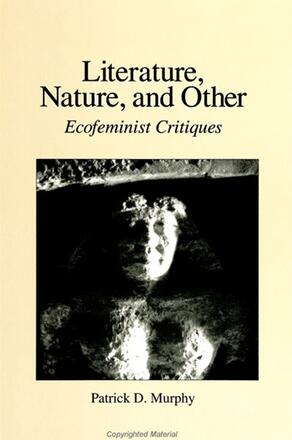
Literature, Nature, and Other
Ecofeminist Critiques
Alternative formats available from:
Postmodern theory at its best--a call for an ecofeminist dialogical method of reading literature and nature.
Description
The book first establishes a theoretical framework for conceptualizing environmental analysis. It then develops a conception of environmental literature with an emphasis on works by women, arguing for the need to reconceptualize woman/nature and nature/culture associations, and critiquing the problems of male poetic sex-typing of the planet. Murphy also elaborates on specific works and authors, with an emphasis on literary texts by Hampl, Harjo, Snyder, and Le Guin. Additionally, he treats issues of canon and pedagogy, as well as the possibility of agency in a postmodern era.
Ranging across diverse fields and incorporating cultural studies, post-structuralist literary theory, and ecofeminist philosophy, Literature, Nature, and Other both defines and critiques the current terrains of literary ecocriticism and nature writing/environmental literature. Literary examples are drawn from fiction, poetry, and prose, including postmodern metanarratives and works by Native Americans and Chicanas.
Patrick D. Murphy is Director of the Graduate Program in Literature and Criticism at Indiana University of Pennsylvania. Among his other books are Understanding Gary Synder; Critical Essays on Gary Synder; Critical Essays on American Modernism; and Essentials of the Theory of Fiction. He is also founding editor of the journal ISLE: Interdisciplinary Studies in Literature and Environment.
Reviews
"This is postmodern theory at its best—theory that resists totalizing language and closure—theory that always points back to the text, the creative well-spring of philosophy and practice.
"Murphy is vibrant, insistent, and responsible as a scholar, literary critic, philosopher, and pedagogical theorist. He is a sharp deconstructionist, but also a strong postmodern optimist.
"In this collection of essays, he acts as a web-weaver and a border crosser—moving back and forth between the camps of philosophy, literary criticism, feminist theory and pedagogical theory—linking strands of thought from such diverse realms as Lacanian psychoanalysis, Deep Ecology, postmodern theory, French Feminism, Bakhtinian dialogics and ecofeminism." — Gretchen Legler, University of Minnesota, Minneapolis